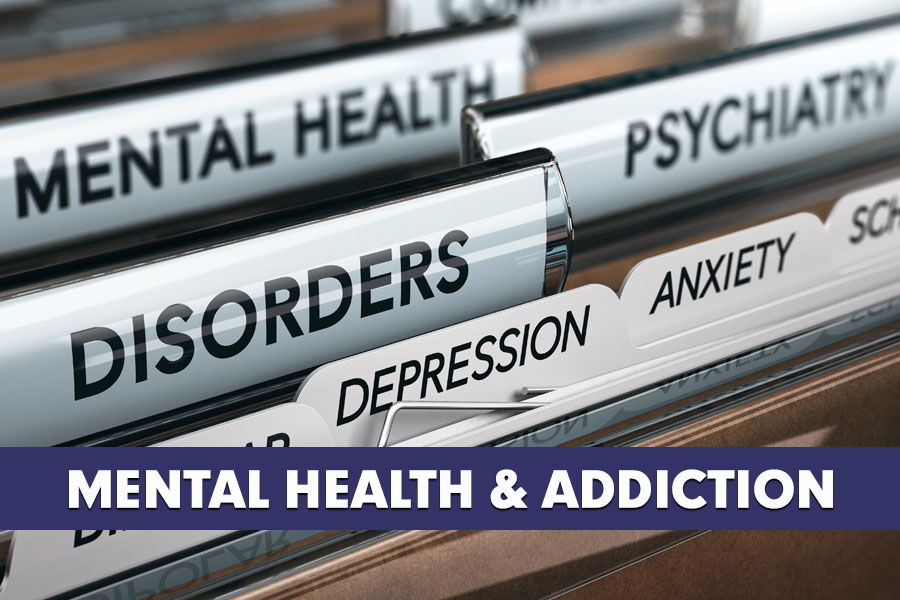Recent studies have shown that there is a clear connection between mental health issues and addictions. While someone with a mental health issue isn’t guaranteed to have an addiction, and those suffering from addiction aren’t guaranteed to have mental health issues, the two are often diagnosed together. To treat one issue will likely mean treating the other at the same time for the person to have the best results. Below is information about how and why a dual diagnosis can occur.
Significant Connection Between Mental Health and Addiction
Reports on the connection between mental health issues and addiction have found they are closely related, and many people who suffer from one will also suffer from the other. In one study, those who are a current mental health patient consume 38% of alcohol and 44% of cocaine. The numbers are higher for those who have been diagnosed with a mental health issue at some point in their life, with those people consuming 69% of alcohol and around 84% of cocaine.
One Disorder Can Trigger the Other
A person is not likely to develop both disorders at the same time, though it is possible. Instead, one disorder will likely trigger the other. Some will have mental health issues that create a risk for them to become addicted. Others will suffer from addiction and, as a result, end up diagnosed with a mental health issue. It doesn’t matter which one happens first, as the correlation between the two goes both ways.
When this does happen, proper treatment is designed to help the person with their cognitive issues and their addiction at the same time to reduce the chance of a relapse.
Mental Health Issues Can Lead to Addiction
Those who suffer from mental health issues may be more likely to try different substances. They also may end up in a position where they feel like addictive substances could help them feel more normal or get relief from the issues they’re having. When they do try drugs or alcohol, because of the preexisting mental health issue, they are more likely to end up becoming addicted.
This can be a risk no matter what the cognitive mental issue is or when it started, but proper treatment for the mental health issue can reduce the likelihood of addiction occurring. Children diagnosed with ADHD, for instance, are at an increased risk of addiction without the proper treatment during their childhood.
Self-Medication Can be an Issue
Those who suffer from mental health issues may attempt to self-medicate if they cannot get treatment for their issues or do not feel therapy will help. Instead of proper treatment, they may end up trying to use drugs or alcohol to escape from their issues or to start feeling normal again. When this happens, they have a higher likelihood of becoming addicted. The drugs or alcohol may give them the feeling they’re looking for in the beginning.
However, as their tolerance levels increase, they may be unable to get that feeling again. This can lead to increased use, increased dependency, and a struggle to overcome the addiction on top of the mental health issue. Depending on the substance, this can all happen quickly.
Addictions Can Lead to Mental Health Issues
Someone who is suffering from addiction can end up with a cognitive disorder. Some people are at a higher risk of developing a mental health issue at some point in their life. For instance, they may have genetic or environmental factors that make them more likely to end up with depression. If they are addicted to drugs like opioids, it could be the push that causes mental health issues to occur.
They can also end up with mental health issues like PTSD because of what happens to them when they’re addicted. Someone who ends up in an abusive relationship because of their addiction, for instance, could end up with PTSD because of the addiction and the abuse.
Addiction Can Make Mental Health Issues Worse
Someone who already has a mental health issue and becomes addicted to drugs or alcohol could end up with much worse issues. They might be depressed, to begin with, and try drugs or alcohol to try to make them feel better. As they become more dependent on the substance, it no longer works the same way, and they end up feeling even more depressed because of the addiction on top of their mental health issues.
When they do try to quit, without the right help, they can slip further into depression. This can lead to a high likelihood of relapse when the person is seeking to recover from their addiction if they do not get help for mental health issues and addiction at the same time.
Seeking Help for Both Issues Together
Today, there are solutions for those who are suffering from mental health issues and addictions. Seeking to recover from the addiction can be far more difficult without the mental health issues being treated. It can also be hard for the person to seek help for their mental health issues without recovering from their addiction.
Instead, the person will want to seek help for both at the same time. The person can seek a dual-diagnosis treatment through a rehab facility to get the right help for both issues. This gives them a higher chance of recovery and helps them handle both their mental health and addiction simultaneously so they can move forward with their life.
Today, studies have shown that mental health issues and addiction are closely related. While it’s not necessary to have one for the other to occur, it does happen frequently. Those who do suffer from any mental health disorder and addiction should seek treatment through a dual-diagnosis facility so they can get the help they need.
The right help makes it possible to treat both addiction and mental health issues, reducing the chance for relapse and increasing the potential for the person to be successful in their recovery.

